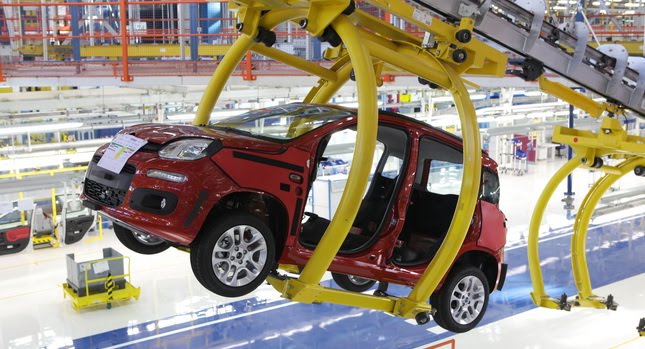With Fiat shares losing 30% of their value in the first nine months of the year, the company’s sales hitting a 20-year low point in Italy, its European market share shrinking from 8.2% to 7.3% and all of its domestic plants recording losses, CEO Sergio Marchionne has been pushing for an increase in productivity.
The workers’ unions, though, have been resisting changes, threatening with strikes and legal action against the Italian automotive group. This, along with the Italian crisis and the fact that Chrysler is the one keeping the group afloat, has led analysts to predict that Fiat may go as far as to partially abandon its home market.
Today, however, Fiat SpA announced that it has signed a collective deal with its 86,000 Italian employees that will allow the automaker to increase shifts and shorten breaks in return for a €20 billion ($26 billion US) investment in the company’s domestic plants.
In addition, as the head of the Fismic Union, Roberto di Maulo, revealed, the base salary will increase by 5.2%, each employee will receive a €600 production bonus next year and be paid 10% more for overtime.
“Reaching an agreement was not easy, but everyone at the table understood perfectly that perpetuating the models of the past, which are responsible for our plants in Italy falling so far behind standards in the rest of the world, was no longer possible”, said Marchionne.
“The new contract will enable both groups to operate more efficiently and, in addition, guarantees all existing rights of our workers remain unchanged and enables them to be the first to benefit from an increase in productivity”, he added.
With this agreement, Marchionne hopes to change the way the group’s Italian plants operate. According to a company presentation, Fiat’s Italian plants have been operating at 38% for the first nine months of the years.
Even if you take into account the financial crisis that is storming Europe’s northern countries, amongst them Italy, the number shows that productivity was way behind its rivals, which had a 76% capacity utilization over the same period.
Story References: Fiat Group and Bloomberg




